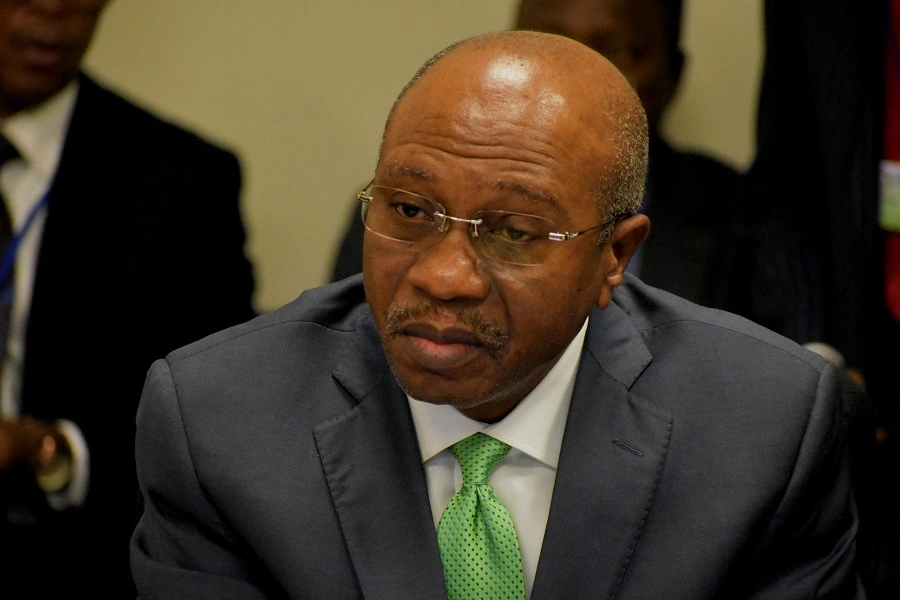Ripple effects from the Central Bank of Nigeria’s increase of the Monetary Policy Rate (MPR) is expected to affect cost of living, which will impact on property prices and home financing.
The apex bank recently raised the benchmark interest rate by 150 basis points from 11.5 per cent to 13 per cent. MPR is the rate at which the bank lends to commercial banks and often determines cost of funds in the economy.
Sequel to the development, housing experts have expressed worries on the implication. They noted it would increase operating costs, prices of housing and limit profit maximisation for non-creative operators in the industry.
The real estate sector has been battling high inflation, which affect prices of building materials, making housing unaffordable. Nigeria’s official inflation climbed to 16.82 per cent in April (7.82 per cent) above the CBN’s target ceiling of nine per cent.
According to experts, the housing delivery challenges are rooted in three major factors namely, lack of finance, escalating cost of building materials and infrastructural development cost. These problems hamper efforts of private developers and housing agencies to build affordable housing and reduce contribution of the real estate sector to the nation’s Gross Domestic Product (GDP).
Housing development is a capital-intensive venture, which requires huge financial obligations. Getting loans from banks comes with tough requirements and ridiculously high rates making accessibility difficult.
Most times, developers are unable to obtain legal documents that would be required by the bank due to issues relating to perfecting land titles.
To avoid the encumbrances, some developers shun bank loans and rely on alternatives to finance their projects. These include an off-plan sales and partnering funders, which is not as friendly as well, but less stringent than bank loans/credits.
The managing partner, Refin Homes Limited, Mr. Kazeem Owolabi, said increasing the cost of borrowing would make it more difficult for developers to operate effectively.
According to him, with rate of MPR, the cost of borrowing will be about 30 per cent and cost of housing production will skyrocket, while cost of rent will increase as the developer factors every costs incurred to maximize profits.
The development, he stated, may make prospective investors to shun investment in the real estate market. “Adding to the MPR will only make borrowing very difficult. If you really want to increase frequency of delivery of homes in any economy, there should be easy provision of funding for developers to do their job.
“There are three variables that make borrowing to finance housing important. The developer has to meet up with the variable of time, material cost in the market, which is subject to exchange rate and labour, which will continue to rise. These are not under the control of developers,” he said.
The president, International Real Estate Federation (FIABCI) Nigeria chapter, Mr. Adeniji Adele, argued that the development would be a disincentive to property investment and investors in the country.
He cited the case of the United States of America, where interest rate is about three and one per cent but recently increased to about 3.5 per cent. The increase in the rate, he observed, had a negative effect on the market.
“Be that as it may, some developers in that economy are still developing and borrowing money from the bank. But, in our own case, with 30 per cent, it is killing and l don’t think any developer will continue to go and borrow money from the bank and come to a place like lkoyi and sell properties. It will take the grace of God to break even,” Adele said.
He further argued that the ripple effects would be on all sectors of the building industry, “It is going to be negative and a disincentive to investors. But that doesn’t mean people will not buy or continue to build houses.”
According to the Principal Partner, Gladstone Opara and Company, Gladstone Opara, most developers have continued to shun the banks for loan due to high interest rate.
He disclosed that his firm was negotiating for a bank guarantee but the bank didn’t want to assist us, “they insisted that what we want is not workable, except we bring 102 per cent of what we want in cash,” Opara said.
Chief executive officer, Fine and Country, West Africa, Udo Okonjo, said the impact is not just on the increase of interest rate but the devaluation of the naira as prices had gone up.
She said that the real estate sector, which shouldn’t be for special people, is unfortunately for special people in Nigeria because of affordability, which is an issue across all levels.
Okonjo said, “And coming from the pandemic in the last two or three years. The real estate sector is not bullish but in a flat shape. Real investors need to put on their creative cap to optimize value, engineer their projects and figure out how to make projects affordable.
“From the pricing point of view, it is not just what you charge but how people pay in terms of construction payment over time from two years to five years. Ultimately, the impact is obvious and it comes down to how you value engineering projects and structure payment in such a way that the participants are now seen as co-investors, instead of developing projects and people coming to buy.”
It is noteworthy that a rise in demand and shortage in supply of housing calls for the need to address issues of affordable housing to halt homelessness in the country.





![[LEADER TO WATCH] Chidinma Nwankwo: Passionate Marketing Communications Expert](https://nationaleconomy.com/wp-content/uploads/2022/06/IMG-20220624-WA0085-e1656146559682-75x75.jpg)